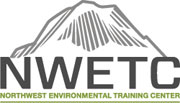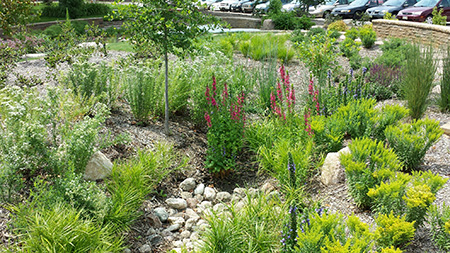**All courses will include both the classroom and field activity portions presented through a remote, interactive, live-stream format. When allowed per state restrictions, we will resume an in-person field activity portion of the course, this will be outside with enough room for social distancing. You will be required to have PPE's, face mask, and follow state/local construction guidelines, we will notify you via email of those requirements. You will need a computer and a reliable internet connection. If you would like more information or have any questions, please contact us via email or phone 425 270 3274.
Low-Impact Development Installations are the emerging standard for community planning and construction. Successful LID installations are planned, executed, and maintained by an informed team. Our LID Workshop offers your entire team a deeper understanding of their role in the success of LIDs in your projects. Learn the latest on LID installations and maintenance, including a live-stream field activity demonstrating the Do’s and Don’ts.
This is a two-day intermediate level course for engineers, planners, landscape architects, local jurisdiction staff, developers, construction managers, and allied disciplines that plan, design, review, and build bioretention and rain garden projects. The course covers two subject areas:
- Fundamental strategies and techniques to assess soils and other site characteristics to effectively and efficiently plan and develop a site layout using LID principles and practices. Specifically, the workshop focuses on the most effective techniques for soils and hydrology exploration, as well as the best timing and location for those tools.
- Current design guidelines, construction details, flow control, water-quality treatment performance, and practical experience necessary to properly design and build bioretention systems and rain gardens.
Participants will:
- Understand the overall site assessment (e.g. soil suitability for infiltration and on-site hydrology) with particular attention to identify LID opportunities during the design process.
- Gain an intermediate level knowledge necessary for proper entry-level design and implementation of bioretention systems in residential and commercial settings (new and retrofit).
- Learn skills necessary for basic site assessment and locating bioretention areas in residential and commercial settings.
- Learn practical skills necessary for construction of basic bioretention systems.








